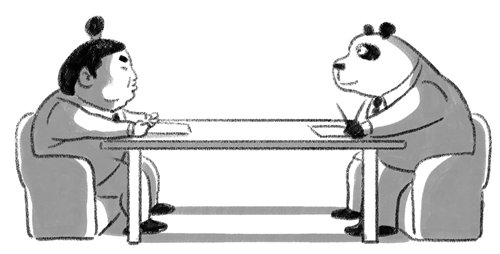
(Photo: Global Times)
Japanese Prime Minister Shinzo Abe beat his contender Shigeru Ishiba, the country's former defense minister, in the ruling Liberal Democratic Party (LDP)'s leadership election Thursday, securing his third term as prime minister that will extend his time in power until September 2021. If Abe finishes his new term, he will break the record of the nation's longest-serving prime minister held by Taro Katsura. Even if Abe is unable to change the Constitution, his longest stint would make history.
Abe won 553 votes, more than twice Ishiba's. But it's not an overwhelming victory. Abe's mandate has lasted six years, while Ishiba is not from the main faction of the LDP. Ishiba winning 254 votes within a short time means that there are anti-Abe forces in the party. Abe's victory has won him another three years at the helm of the party, but it is also a countdown of his time in the office. As 2021 approaches, Abe's influence and authority in the LDP will undoubtedly decrease. Regardless of Ishiba's failure, the election has brought him more bargaining chips for his 2021 LDP leadership election. In the "post-Abe" era, the next prime minister is likely to be the one who opposes Abe in the LDP.
After every LDP election, the newly-elected prime minister reshuffles the cabinet. It is not only to reward people in keeping with their contributions, but also to create a new party image. According to Japanese media, Abe will announce the cabinet reshuffle on October 2. In my opinion, Abe will make slight changes. He wants to resolve the disputes in the party and ensure that the policies of his cabinet will be implemented in a stable way.
By winning the election, Abe will further strengthen his ruling authority and will place revising the Constitution officially on the agenda. It is expected that he will submit the constitutional amendment draft to the interim parliament in late October.
Although the LDP election is an internal affair of Japan, Abe being re-elected also benefits China-Japan relations. The unstable Japanese government is the main reason why bilateral relations have faced twists and turns since the 21st century. It also makes the implementation of policies hard, and leads to the Japanese government's inconsistent approach toward relations with China. However, Abe has ended the instability since he was re-elected prime minister by the end of 2012. It has helped implementing the long-term policies of the two countries, and has also increased political mutual trust between leaders from the two sides.
It is true that during the six years of Abe's mandate, China-Japan relations were on a decline until 2017.
But it shouldn't be ignored that the two governments have maintained communication from 2013 to 2017 and President Xi Jinping has met Abe during many international conferences. Thanks to endeavor from the two countries, China-Japan relations have returned to normalcy in only one year. Abe will serve for a longer period, after the previous breaking-in period, divergences between the two countries will be decreased.
The next National Congress of the Communist Party of China is expected to be held in 2022 while Abe's term theoretically ends in 2021, so the stability of Chinese and Japanese governments will help the two countries improve relations. Meanwhile, the Abe administration needs China's help to protect the multilateral free trade system, to stand against US trade protectionism and to develop infrastructure in a third country. All this will deepen cooperation. That being said, Sino-Japanese relations will develop stably in the future.


